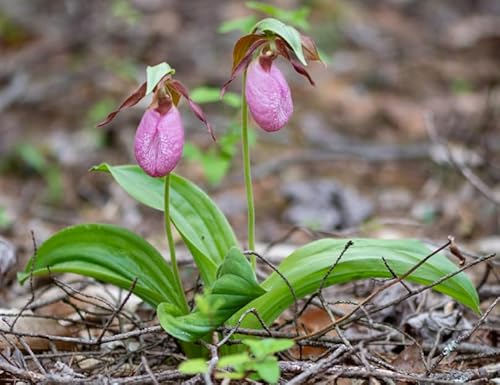-
If you have bought, sold or gained information from our Classifieds, please donate to SlipperTalk Forum and give back.
You can become a Supporting Member or just click here to donate.
You are using an out of date browser. It may not display this or other websites correctly.
You should upgrade or use an alternative browser.
You should upgrade or use an alternative browser.
Wanted Chunky sponge rocks and charcoals source
- Thread starter Tom-DE
- Start date

Help Support Slippertalk Orchid Forum:
This site may earn a commission from merchant affiliate
links, including eBay, Amazon, and others.
The air spaces for perlite #4 are definitely larger than those I have seen for leca but leca probably gives just as much air as #3.I looked up the archives, it was "mother earth perlite", 4 cu ft each, but it says unavailable now. there's a lot of other options on amazon but I don't know the vendors or products. Not sure sponge rock varies that much though, as long as it's the correct size.
Personally I really like sponge rock for the slippers for the air retention. I have a pile of old LECA and while they are both inert products I do not believe LECA holds that same quantity of air. yes sponge rock can be crushed, but most people don't pot paphs/phrags in a fashion where you should be crushing them.
Motherearth #3 and #4 can be purchased through other retailers
What do you use for Lycaste?Sponge rock, perlite, pumice, lava rock... they are all largely the same thing. Lava rock just has a higher mineral content while sponge rock is principally silicon. I am have excellent results with lava rock so far. Papsh (even seedlings), Catts, Restrepia, Masdevallia, Ansellia, Oncidiums are all taking to it. Only the Lycaste objected.
I was using sphagnum in a basket. It didn't really like that either but it absolutely hated the lava rock and died.What do you use for Lycaste?
That’s a little too broad of a statement for my mind.The air spaces for perlite #4 are definitely larger than those I have seen for leca but leca probably gives just as much air as #3.
Motherearth #3 and #4 can be purchased through other retailers
The most open volume occurs when all of the particles are perfect spheres of identical size, at roughly 40% open. Any size or shape variation reduces that.
Having said that, perlite, being sharply jagged or “craggy” might interlock sharp edges to create larger voids, but it’s also quite friable, so can crumble over time, ultimately packing more tightly.
And is it good, then to seive, say Hydroton, to get more equal size spheres, or is there a brand that has equal sizes? Hydroton is quite variable.That’s a little too broad of a statement for my mind.
The most open volume occurs when all of the particles are perfect spheres of identical size, at roughly 40% open. Any size or shape variation reduces that.
Having said that, perlite, being sharply jagged or “craggy” might interlock sharp edges to create larger voids, but it’s also quite friable, so can crumble over time, ultimately packing more tightly.

$11.99 ($0.12 / Count)
CHUXAY GARDEN Cypripedioideae-Lady's Slipper Orchids,Lady Slipper Orchids 100 Seeds Tropical Exotic Orchids Rare Small Orchid
color green

$29.99 ($15.00 / Count)
2 Pink Lady Slipper Orchid Plant Live Bud Roots, Live Orchid Plants Bud for Planting, Rare Orchids Plant
RACHEAL LEE BARRETT

$49.99 ($25.00 / Count)
2 Lady Slipper Orchids, Yellow Orchids Plants Live Lady Slipper, 2 Medium Root Bulbs Ornament Orchids Plant Root, No Leaf
KIM MARIE SMITH
You’re right, Harvey.
It used to be that the “standard” or at least typical LECA was 8-16 mm. The stuff I sold as PrimeAgra was the 10-16 mm cut, but I find that most are even more variable these days.
That said, in my experience, uniform, perfect spheres are not necessarily the best potting medium, as they can move too easily, leading to wobbly plants. A little bit a size and shape variation helps reduce that.
The (apparently) one-and-only hydroponics shop in Wilmington carries a product called CYCO Hydro Rocks (or something like that), and it’s pretty good.
It used to be that the “standard” or at least typical LECA was 8-16 mm. The stuff I sold as PrimeAgra was the 10-16 mm cut, but I find that most are even more variable these days.
That said, in my experience, uniform, perfect spheres are not necessarily the best potting medium, as they can move too easily, leading to wobbly plants. A little bit a size and shape variation helps reduce that.
The (apparently) one-and-only hydroponics shop in Wilmington carries a product called CYCO Hydro Rocks (or something like that), and it’s pretty good.
Similar threads
- Replies
- 21
- Views
- 2K
- Replies
- 8
- Views
- 561








